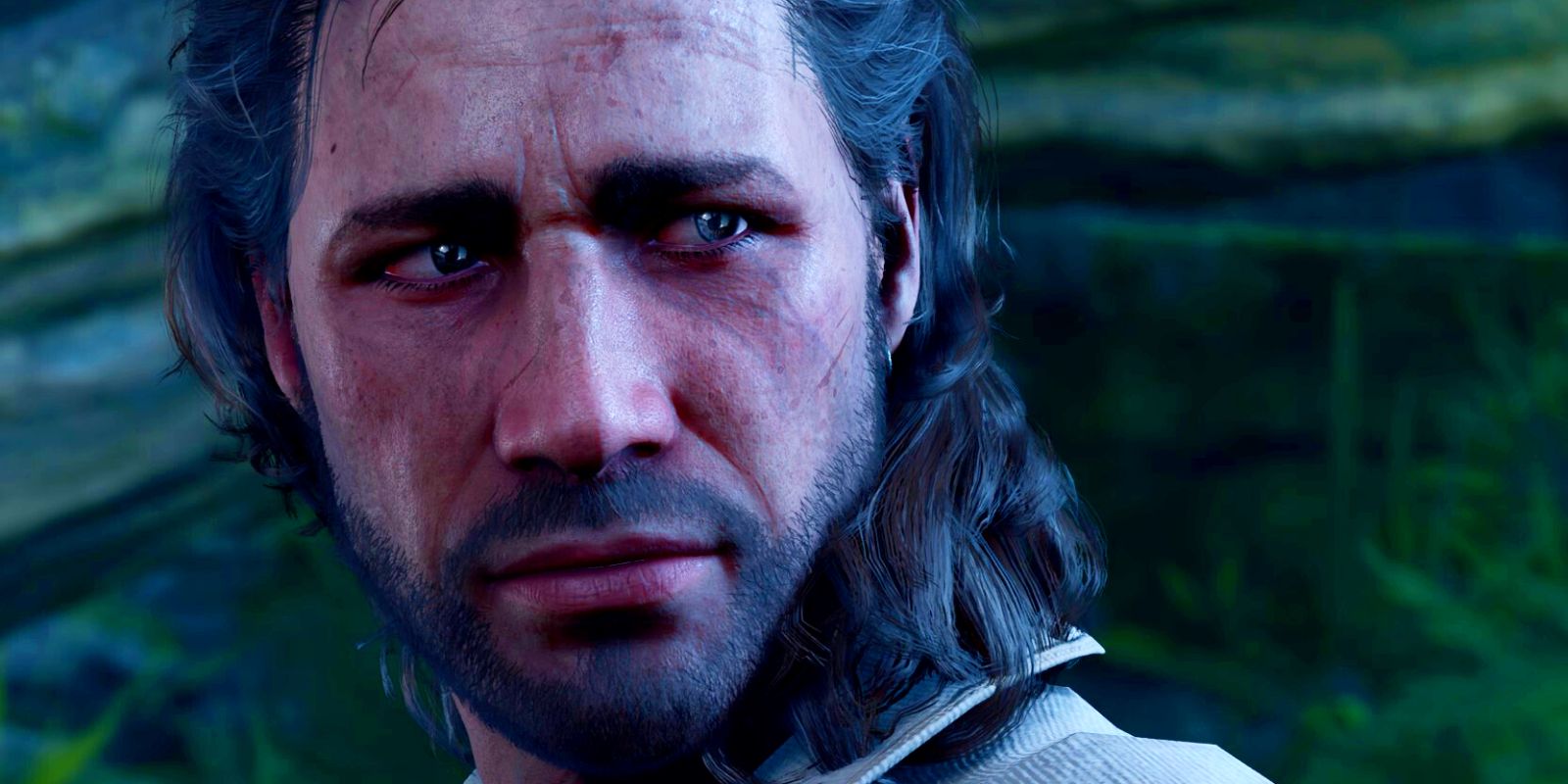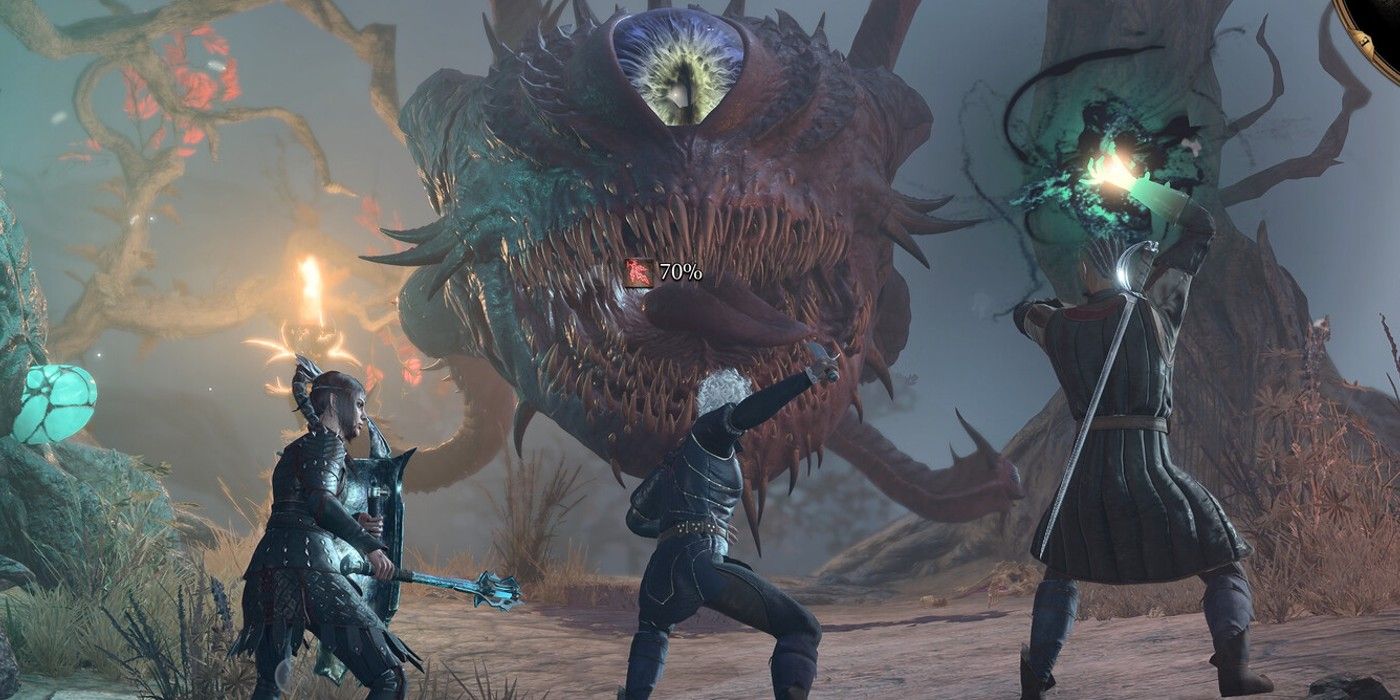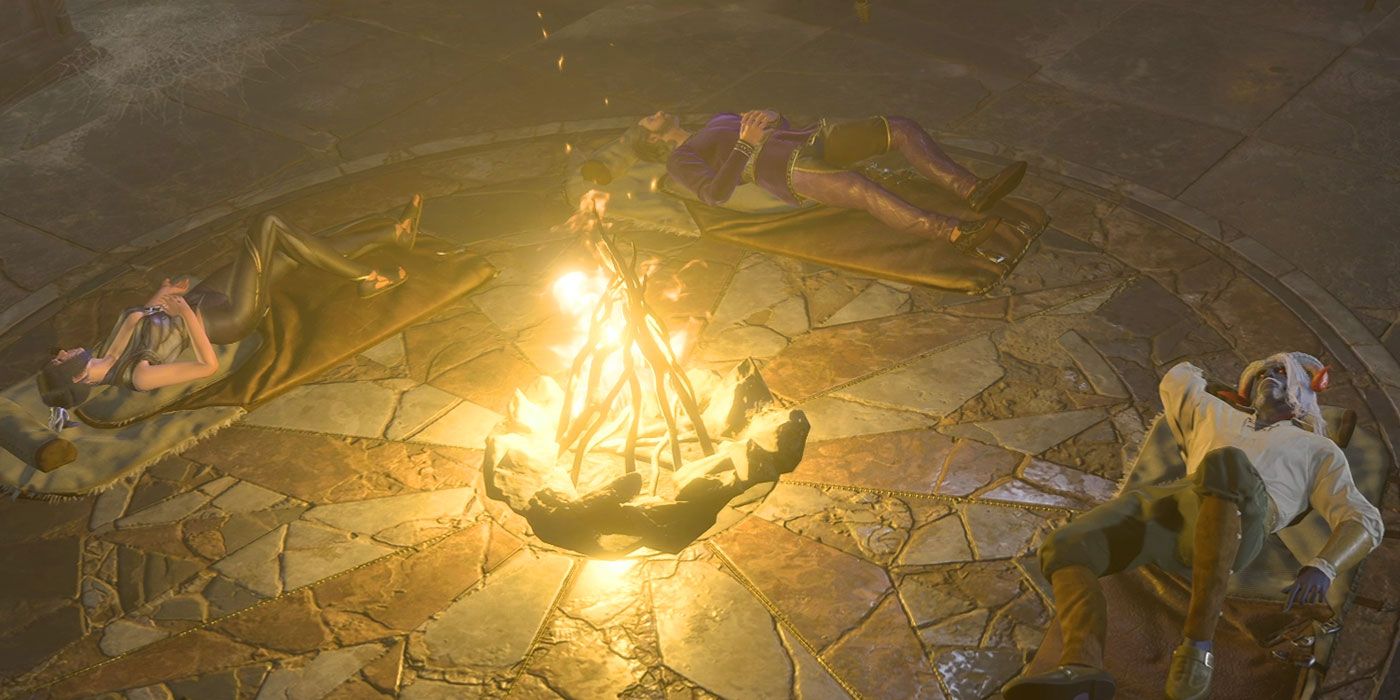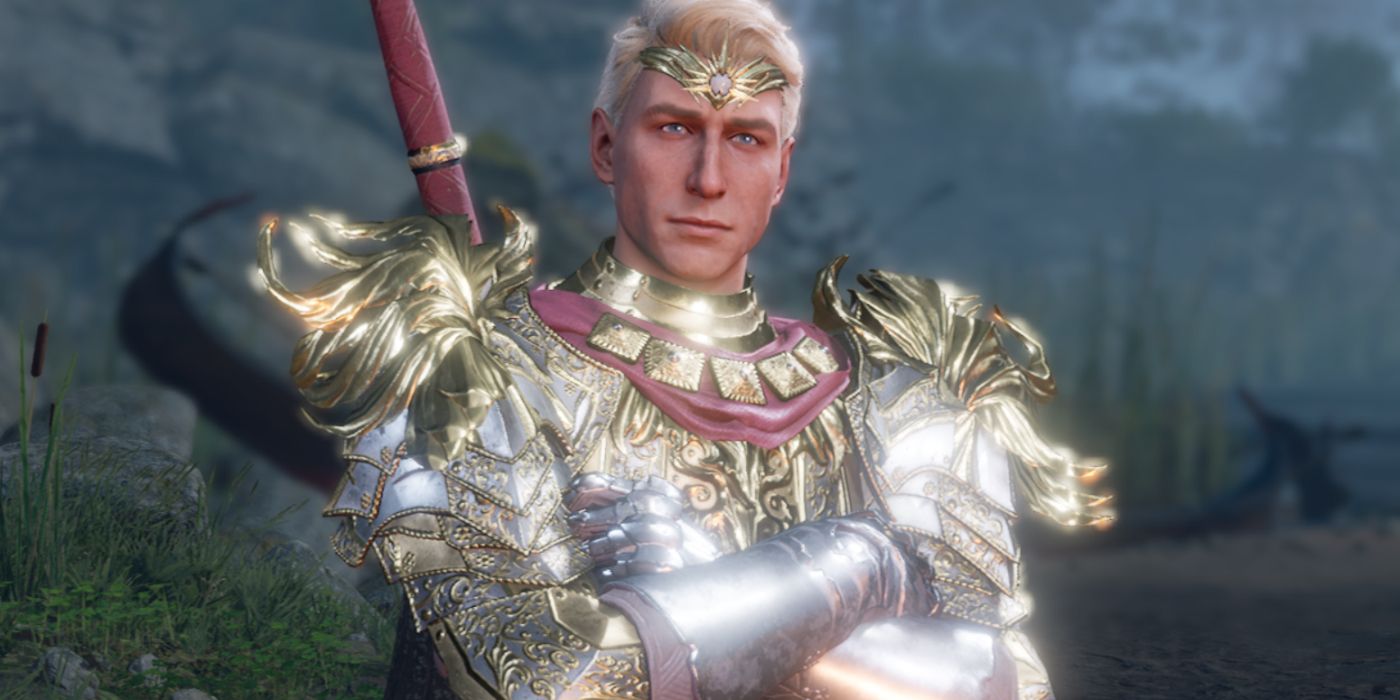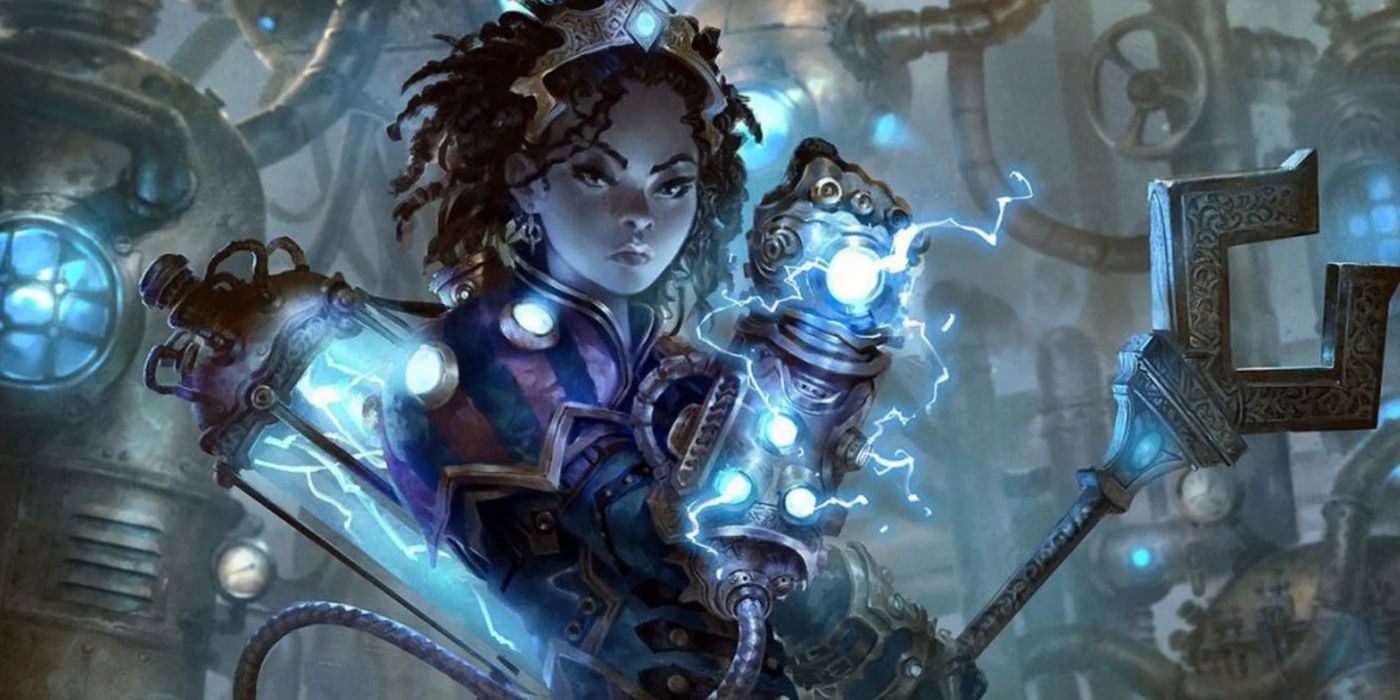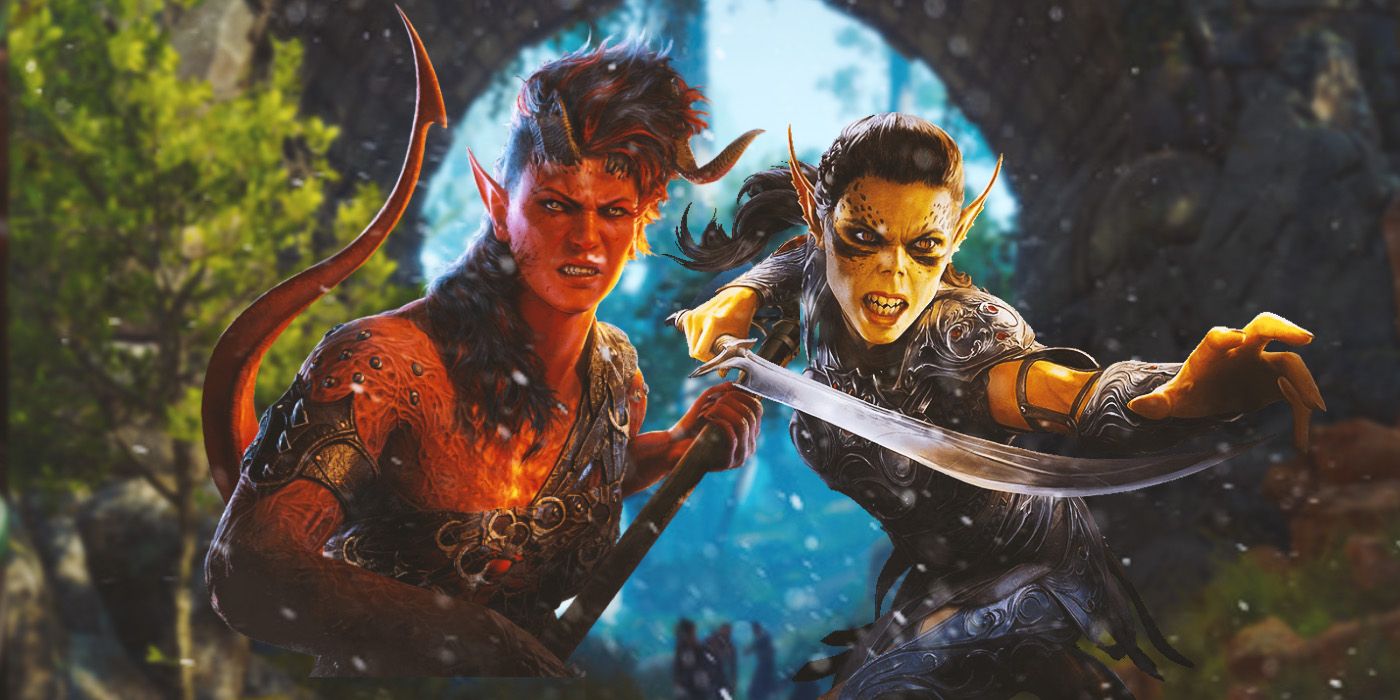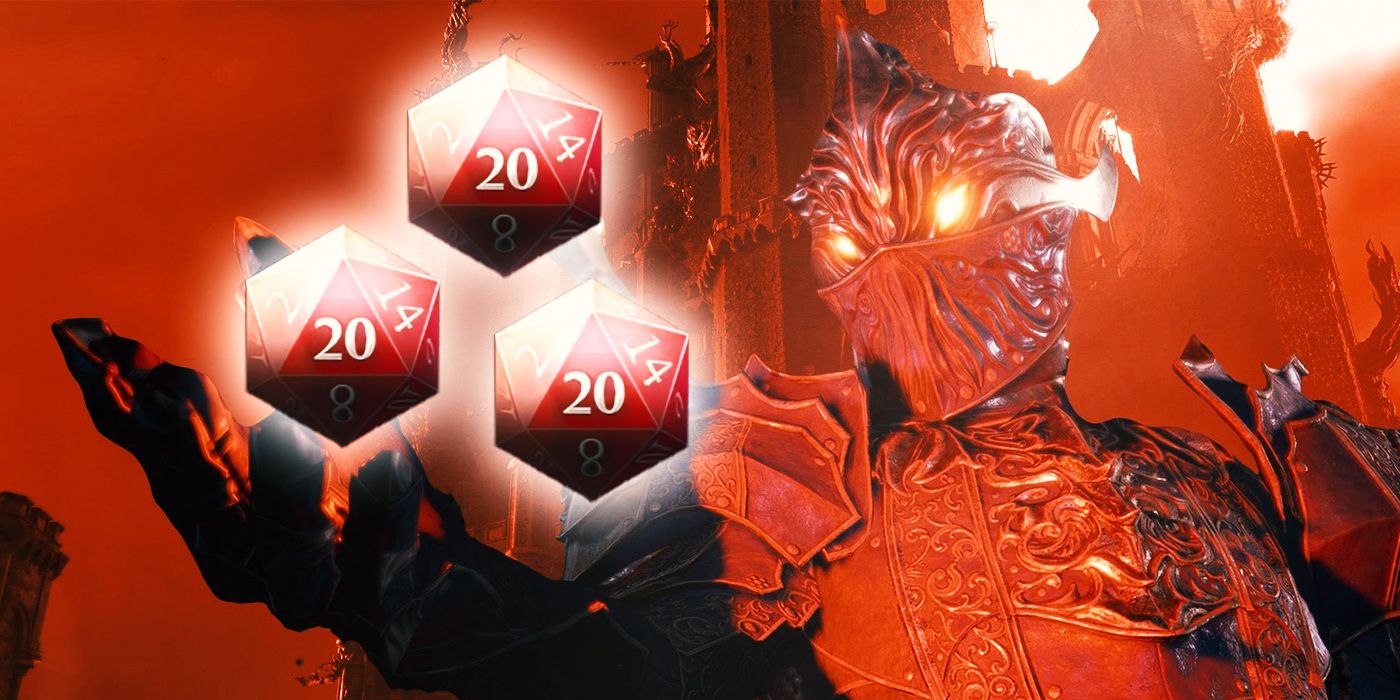Summary
- Many DnD features aren’t present in Baldur’s Gate 3.
- The Dodge action, which focuses on defensive maneuvers, is absent from BG3’s combat options.
- BG3 unnecessarily complicates the process of Long Rests by requiring players to supply their own food for a full recovery.
Baldur’s Gate 3 may be an adaptation of Dungeons & Dragons, but that doesn’t always mean it’s a perfect, one-to-one conversion. BG3‘s rules for resolving dialogue and combat scenarios are drawn directly from the Fifth Edition of DnD rules, which was first released in 2014. This is the first mainline game in the Baldur’s Gate series to be based on the Fifth Edition; the first and second both draw from the Second Edition. However, it draws more expansively from the Forgotten Realms campaign setting, which has been employed in DnD modules and spin-offs since its very first edition.
But while BG3 is probably the closest thing to DnD 5e in a video game, there are many differences between the two. While some changes were made for practical purposes, either to make DnD rules function outside a tabletop setting or simply to make BG3 a more accessible experience, others are simple omissions. And while plenty of these changes are perfectly understandable, certain beloved DnD features are completely missing from BG3 for little apparent reason. Here are ten cues Baldur’s Gate 3 should’ve taken from DnD, but ultimately didn’t.
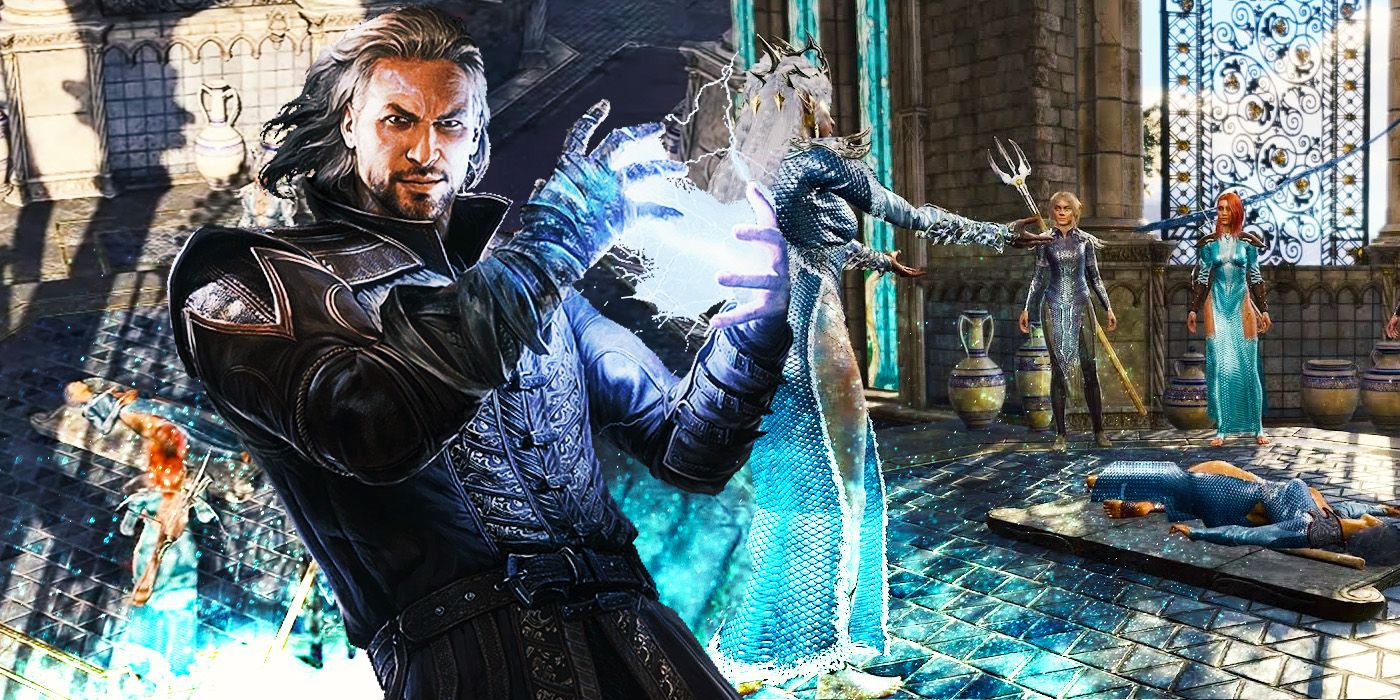
10 Things You Can Do In BG3 That Are Against D&D Rules
There are some differences between Baldur’s Gate 3 and D&D when it comes to abilities and actions that mean that some D&D rules are getting broken.
10 Dispel Magic Isn’t In BG3
One Of Many Missing Spells In Baldur’s Gate 3
Many DnD spells were cut from Baldur’s Gate 3, but perhaps one of the most-missed is dispel magic. This third level spell is available for all magically-inclined classes, and does exactly what it says on the tin: it immediately ends all magical effects on its target, as long as they were created by spells of or below the level dispel magic was cast at. With an ability check, it can also remove magic effects of higher levels. Despite the wide variety of magically-inflicted status effects in Baldur’s Gate 3, dispel magic just isn’t available in the game at all.
9 BG3 Should’ve Included The Dodge Action
A Strategic Sacrifice In D&D
Another oft-used DnD combat option completely absent from BG3 is the Dodge action. In a DnD combat turn, any character can sacrifice their main action to Dodge, at which point their sole focus will be on defensive maneuvers. This grants disadvantage on any attack rolls made against them, while also providing advantage on Dexterity saving throws. Dodge is strategically interesting; it requires a character to skip a turn of attack, but can pay off in spades if they’re able to avoid what would’ve otherwise been a devastating blow. But as useful as it would’ve been in BG3‘s resolve-crushing new difficulty modes, it’s once again missing from the game.
8 BG3 Should’ve Simplified Its Long Rests
Long Rests Are Easier In D&D
Baldur’s Gate 3 borrows the concept of Long Rests from DnD – in theory, the party can restore all their HP, spell slots, and other resources by getting a good night’s sleep. However, BG3 needlessly complicates the process of resting, requiring the party to supply their own food in order to gain the benefit of a full recovery. This might’ve been interesting if food were scarce, or if there were a deeper cooking mechanic that provided certain benefits for particular culinary combinations. However, neither of the above is the case, so picking up and using food just seems like a chore.
7 BG3 Could’ve Made Character Alignment Interesting
A D&D Option For More Rigid Character Roles
Character alignment might also have been an interesting, DnD-inspired addition. Alignment in video games can be somewhat limiting, but with BG3‘s unique approach to player freedom, it might’ve actually created even more variety of choice. Picking an alignment at the beginning of the game could open up different dialogue options, similar to the race-, class-, and background-specific lines that already exist. Of course, player characters, especially the Dark Urge, may undergo moral shifts throughout the plot, so this would have to be adjustable. BG3 could also have gone for a dynamic system of alignment, in which a character’s choices determine their morality and what dialogue options later become available.
6 BG3 Should’ve Had A Wider Variety Of Playable Races
BG3 Only Uses 11 D&D Races
While there are mods that add DnD playable races to BG3, the vanilla version of the game only has 11 racial choices. In the scheme of things, that’s not bad – the base edition of DnD 5e only includes nine, and many other fantasy video games have far fewer options. However, there are some surprising blind spots in BG3‘s character creator. Players can’t create full-blooded orcs, just one of a wide variety of unique playable DnD races. Many of these would add new abilities or challenges to Baldur’s Gate 3. Hopefully, there’ll be more races added in a future patch or DLC.
5 BG3 Should’ve Had A Wider Variety Of Subclasses
All The D&D Basics Are There, But There Are Some Interesting Deep Cuts
Much like its races, there are also a variety of interesting DnD subclasses that didn’t make it into Baldur’s Gate 3. In particular, Gunslinger fighters might’ve been interesting, adding the option for simple firearms. The College of Eloquence would make some bards into dialogue check-passing powerhouses. Way of the Drunken Master, a monk subclass, provides opportunities for creative movement (and would also include some very fun attack animations). Many of these would need a little tweaking, but mods or DLC for BG3 could expand its subclass options.
4 BG3 Should’ve Adapted The Artificer Class
A Whole Missing Class From D&D
Artificers are some of DnD‘s most interesting magic users, drawing extraordinary effects from the most mundane objects. Unfortunately, their existence requires more than a little bit of technological advancement, so they don’t work in every setting – BG3‘s Forgotten Realms included. Some artificers use firearms, which don’t really seem to exist in Baldur’s Gate 3. They’d be an interesting addition in DLC, especially with BG3‘s myriad magic items. Just don’t let Gale get his hands on any of the artificer’s tools.
3 BG3 Should Allow For Levels Up To 20
Or Some Endgame Bonuses Based On High-Level D&D Skills
There are plenty of perfectly good reasons why Baldur’s Gate 3 has a level cap of 12 and DnD has a level cap of 20, but that doesn’t make it sting any less. For one thing, players who do a lot of side content will almost certainly hit the level cap long before the end of Act Three, which can make the last few hours without power-ups boring.
A full recreation of DnD‘s leveling system in BG3 probably isn’t possible; DnD characters are basically gods at level 20, and that’d require some impressive works of game design wizardry. Still, a couple more levels at the end might be nice, or at least some endgame bonuses based on level 20 DnD class features.
2 BG3 Is Missing The Ready Action
Another Impossible D&D Strategy
Ready is another interesting DnD strategy: once used, it allows a player to define an action and their character’s reaction to it, effectively putting off their turn until a certain condition is satisfied. Unfortunately, players can’t Ready actions in BG3. It’d prove an interesting addition to its battle tactics, allowing players to shuffle around turn order instead of, say, wasting a turn waiting for an enemy to come through a door. However, it might need a little nerfing, since the tabletop version requires absolute specificity of the action and reaction.
1 BG3 Can’t Keep Its Rolls Secret
D&D Allows DMs To Control How Much Their Players Know
Say a DnD party is wandering through a dark forest. Behind them, a rogue lurks in the shadows, and the DM quietly rolls a passive Perception check to see if anyone notices. If one of them succeeds, they’ll learn of their pursuer, but if all of them fail, they’ll never even know they were being watched. This mechanic, called a secret roll, creates a more immersive experience. If the players knew about the roll, they’d know there was something they weren’t seeing, even if they couldn’t identify it. That’s unrealistic, and can disrupt plans for storytelling.
But unfortunately, secret rolls aren’t secret in Baldur’s Gate 3. Players see all their passive Perception, Insight, and Survival checks on-screen as they happen, regardless of whether they succeed or fail. Now, they may not be able to act on them if they fail, but there’s an easy exploit: just keep bringing party members over from camp until one of them passes. This feels unnecessarily generous. Hiding secret rolls creates more interesting character moments, where the party must sometimes act with incomplete knowledge. It’d mean missing certain hidden treasures, but in the long run, would make for more immersive gameplay.
Some of these missing features are little more than pipe dreams; it’s unlikely BG3 will ever allow for levels up to 20, or include the full menu of playable DnD races in its character creator. But others are certainly possible in DLC, and some have already come to fruition in player-made mods. It may not always be a perfect recreation of Dungeons & Dragons, but that doesn’t detract from the incredible freedom of choice provided by Baldur’s Gate 3.
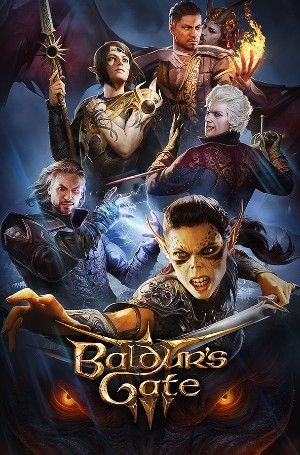
Baldur’s Gate 3
Developed and published by Larian Studios, Baldur’s Gate 3 is an upcoming role-playing game set to release in August of 2023. Players will create a character to embark on a large-scale journey and can do so solo or cooperatively with a friend. Combat is a turn-based style this time around.
- Released
- August 31, 2023
- Developer(s)
- Larian Studios
- Publisher(s)
- Larian Studios
- ESRB
- M
- How Long To Beat
- 50 – 100 hours
- Prequel
- Baldur’s Gate 2

